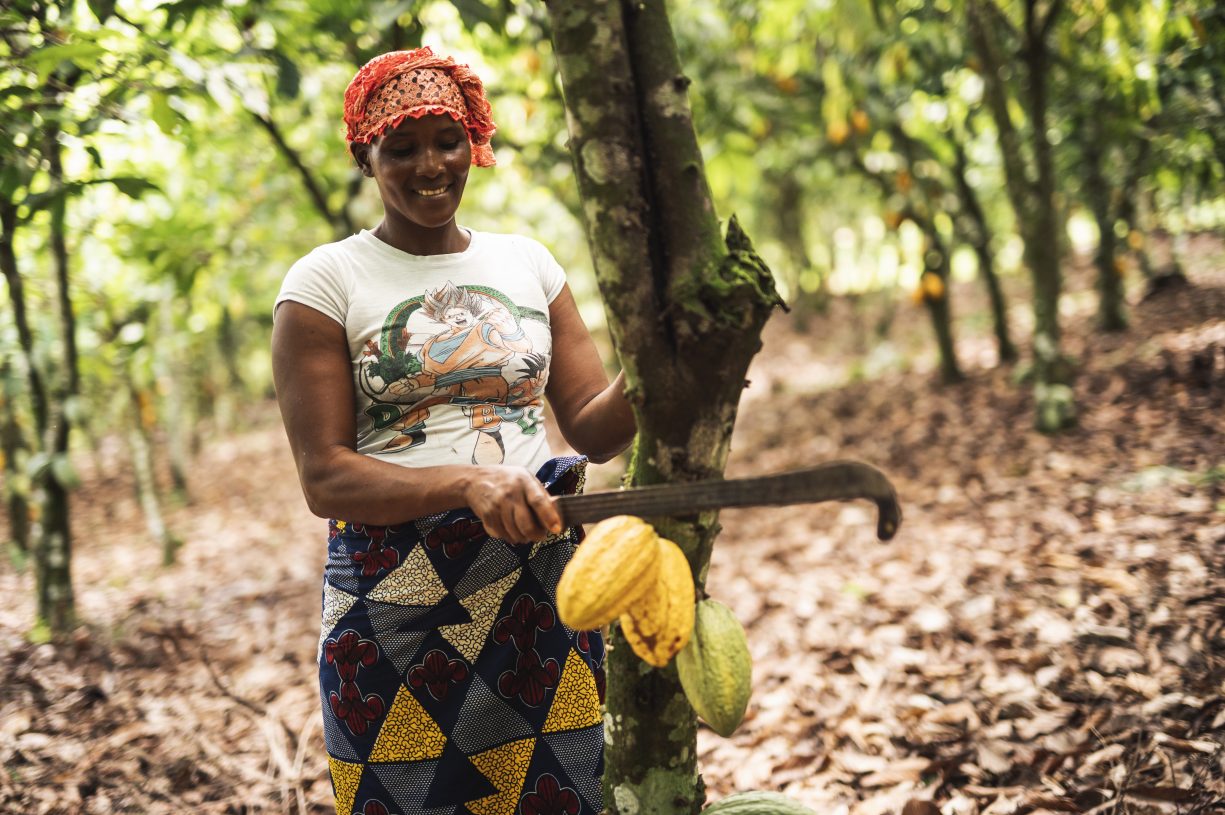Helping Ben & Jerry’s provide living incomes


The farmers and workers around the globe that we consumers depend on are struggling to sustain their livelihoods, but businesses like Ben & Jerry’s are leading the way in changing that. Learn why they choose Fairtrade to deliver a living income to farmers in their supply chain.
Standing Up for Fair
Fairtrade and Ben & Jerry’s have partnered together since 2006 to source the ice cream company’s cocoa, bananas, coffee, vanilla and sugar from certified Fairtrade producers, generating enormous impact for thousands of farmers and workers around the world.
In early 2021, Ben & Jerry’s parent company, Unilever, promised to ensure that every person in its supply chain is earning a living wage by 2030. The bold commitment is part of Unilever’s broader sustainability goals, which focus on combating climate change and social inequality – the “two biggest threats that the world currently faces,” as Unilever CEO Alan Jope said.
Ben & Jerry’s has always been a company in business to do good, and providing living wages for farmers is one more way that the brand is living out the principle of “linked prosperity” it was founded on.
“Fairtrade is about making sure people get their fair share of the pie. The whole concept of Fairtrade goes to the heart of our values and the sense of right and wrong. Nobody wants to buy something that was made by exploiting somebody else.”
– Jerry Greenfield, Ben & Jerry’s Co-Founder
Why Fairtrade?
Fairtrade has been working on living wage and living income strategies since 2012, and our mission is to ensure that producers are paid enough to sustain decent livelihoods that cover their basic human needs. We envision a world where all producers are able to fulfill their potential and decide on their futures, and shaping a fairer trade system is how we are going to get there.
Cocoa is one of Ben & Jerry’s most important commodities, and through Fairtrade partnership, the company is making a difference for producers in a particularly challenging industry. Rock bottom prices for cocoa are at the root of issues like child labor, extreme poverty and deforestation, and cocoa growers are especially vulnerable to the challenges of climate change. Fairtrade, with its global network of producer organizations and business partners, continuous research in the field, rigorous social, environmental and economic standards and its support structures for cocoa farmers, is a perfect partner for Ben & Jerry’s to accomplish Unilever’s bold goal.
Increasing Incomes for West African Cocoa Farmers
Fairtrade studies of cocoa farmer households in Cote d’Ivoire show momentum toward living incomes for farmers. Aided by a Fairtrade Minimum Price increase in 2019, Ivorian cocoa farmer incomes have increased by 85% since 2016.
How We're Helping
As a Fairtrade partner, Ben & Jerry’s pays at least the Fairtrade Minimum Price for cocoa, a floor price that covers the costs of production. Fairtrade is the only certification scheme that has a mandatory minimum price to act as a safety net for farmers when market prices fall while also allowing them to benefit when prices rise.
Ben & Jerry’s also supports farmers through the Fairtrade Premium, an extra sum on top of the price that is democratically invested by producer organizations in business and community development projects. As of 2020, Premiums for farmers generated from Ben & Jerry’s products alone comprise between 1-2% of total Fairtrade Premiums globally.

Fairtrade’s work to support farmers is showing real results. In 2019, after a study of Ivorian cocoa farmer cooperatives and households, Fairtrade raised cocoa’s Minimum Price and Premium by 20% to better support farmers, including those that provide all of Ben & Jerry’s cocoa for the chocolate in their famous desserts. An update to the study in 2021 showed that farmer incomes have increased by 85% over the last several years and more are living above extreme poverty levels than ever before.
Ben & Jerry’s took their commitment to farmers even further in 2020, signing on to pay Fairtrade’s voluntary Living Income Reference Price, an even higher cocoa price that would lift nearly all farmer households out of extreme poverty if paired with higher harvest yields. Thanks to the Living Income Reference Price, Ben & Jerry’s was projected to pay an additional $600,000 in 2021 for the 5,000 farmers that supply their cocoa.










